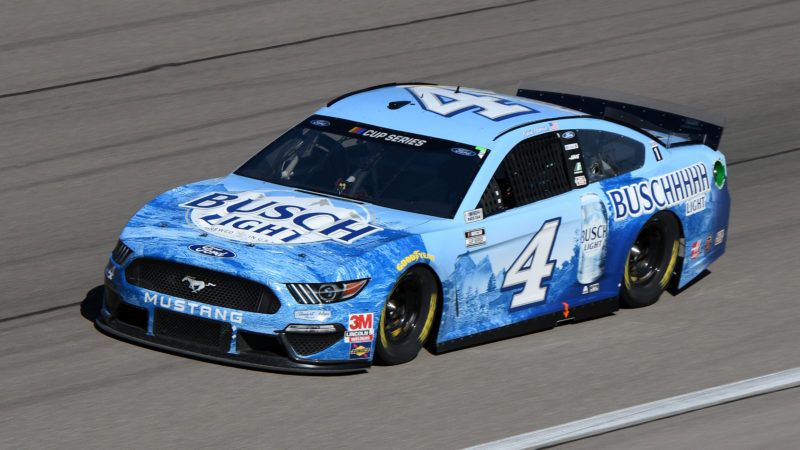NASCAR and Golf Return to TV, Paving Way for Pandemic-Friendly Sports
Races reopened without fans this weekend, to mostly good reviews. Sports and entertainment are shifting to serve social-distancing needs.

It was back to the races Sunday—but without any fans. After a 10-week hiatus, NASCAR resumed its season, one of the first major U.S. sports to do so since the COVID-19 shutdowns began.
With drivers, officials, and crew masked, with limited press access, and with no audience in the stands, yesterday's race in Darlington, South Carolina, still seems to have been a hit.
The race "could have gone wrong in a lot of ways," writes Scott Fowler at the Charlotte Observer. "Instead, it served as a symbol that things can still go right," carrying "an air of welcome normalcy."
"Consensus: A little weird, but OK once the race got underway," concluded Newser.
"I just want to thank everybody from NASCAR and all the teams for letting us do what we do," winner Kevin Harvick told reporters afterward.
Four more NASCAR races are slated to take place this month. Meanwhile, more contact-heavy sports—from the professionals to the little leagues—are still struggling to figure out when and how they might even begin to relaunch.
Yesterday also saw the return of televised live golf. A charity match in Juno Beach, Florida, had no live observers; players carried their own bags. ("The golf was uneven, the banter flat, the ending kind of unsatisfying. But it was certainly more fun than no golf at all!" concluded Alan Shipnuck of Golf magazine.) Last week, the PGA Tour announced its reopening plans.
Sunday's sanitized speedway and self-reliant golfers show how athletes are adjusting to the COVID-19 era. They also showcase how the pandemic could reshape popular entertainment, as some options stand much better poised to get back to business than others.
Minimal-contact sports like car racing and golf can carry on with reasonable adjustments. Basketball and football, not so much.
This doesn't just apply to sports. In the television realm, most production is still suspended, yet some reality TV programs have been able to persist while keeping participants isolated. The Voice and American Idol have carried on by having both singers and judges broadcast from home. And The Real Housewives of Atlanta recently hosted a virtual reunion.
"While it's still anyone's guess when traditional production can resume in Hollywood, many reality TV series are finding ways to adapt to the current reality, with subjects self-shooting with their camera phones or over video conference," notes the Los Angeles Times last week.
Shari Levine, executive vice president of production at Bravo, told the paper that a host of precautions could ultimately change the feel of the final product. That may mean "more of a documentary feel to it, because it may sort of feel more run and gun," as well as changes in the kinds of interactions that will be filmed. "I really think there is permission, even for Bravo, which is more of a glossy look network, to reflect exactly what's going on right now."
Some of these changes will be short-term fixes, but others have the potential to produce longer-term effects. That goes for the film industry, too, as COVID-19 is changing how new feature films are released and consumed.
Drive-in movie theaters, now one of the few safe ways to see movies outside the home, could become more than just a novelty relic of bygone times.
In addition, more new releases might be straight-to-streaming, as movies like Trolls World Tour prove it can be done with no economic downside. Trolls World Tour was released straight to digital rental on April 10 (for $19.99 per rental) and has already netted more revenue than the first Trolls, which had a traditional theatrical release.
If things return to normal fairly quickly, things like that might be but short-term blips in our viewing trajectory. But the longer the pandemic and the lockdowns wear on, the more likely they are to have long-term effects on TV, spectator sports, and other entertainments.

Show Comments (73)